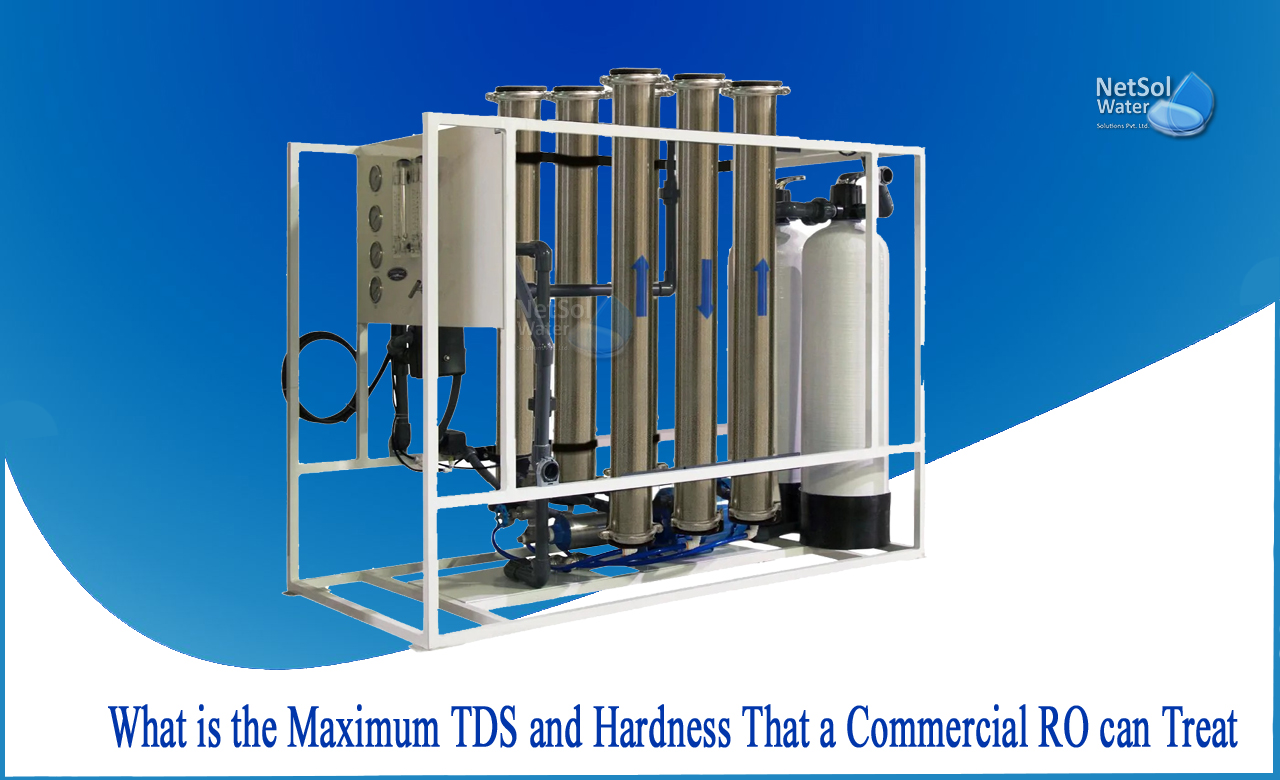What is TDS (Total Dissolved Solids)?
Total Dissolved Solids (TDS) are organic and inorganic components, such as minerals and ions that are dissolved in a certain amount in water or wastewater. Particles are absorbed into the water as water travels over stones, pipelines, or other surfaces.
TDS in water/wastewater can come from a variety of sources, including minerals in water treatment chemicals, runoff from road salts, and agriculture chemicals or fertilizers. The most frequent ingredients are calcium, magnesium, sodium, and potassium cations, as well as carbonate, hydrogen carbonate, chloride, sulphate, and nitrate anions.
TDS and its importance in Drinking Water
TDS in drinking water comes from a variety of sources, including natural sources, sewage, urban run-offs, industrial wastewater, chemicals used in the water/wastewater treatment process, chemical fertilizers used in the garden, and plumbing. Water is a universal solvent that easily takes up pollutants and may swiftly absorb and dissolve them. Although increased TDS levels in drinking water may not pose a health risk, they do give the water a bitter, salty, or brackish flavour.
Why is TDS measurement necessary?
The water you get has more than the maximum amount of TDS that should be present in water. Water with a TDS level more than 1000mg/L is unsuitable for human consumption. A high amount of TDS in water can cause a variety of health issues.
The presence of potassium, sodium, and chlorides in the water raises the TDS level. Toxic ions found in water, such as lead, nitrate, cadmium, and arsenic, can cause a variety of significant health concerns. This is especially critical for youngsters since their defence systems have not completely grown, making them considerably more exposed to pollutants. The purer the water, the better one's health. Netsol Water Solutions’ offers one of the top RO Plants in India, which includes a TDS controller to guarantee that the water you consume is safe to ingest.
What is the maximum TDS and Hardness that a Commercial RO can treat?
The allowable limit of TDS in drinking water has been set at 500 mg/L by the Bureau of Indian Standards (BIS).
The regulation does state, however, that if no other supply of drinking water is available, the permissible level might be reduced to 2,000 mg/L.
According to the BIS research, if the TDS in drinking water exceeds 500 mg/L, it might cause gastrointestinal irritation as well as a decrease in palatability (pleasant taste).
The flavour of water can be affected by the presence of dissolved particles. Panels of tasters have graded the palatability (acceptable taste) of drinking water in relation to its TDS level as follows:
|
TDS Level ( mg/l) |
Rating |
|
Less than 300 |
Excellent |
|
300-600 |
Good |
|
600-900 |
Fair |
|
900-1200 |
Poor |
|
Above 1200 |
Unacceptable |
This permissible TDS level only applies to typical freshwater; if the water contains hazardous pollutants such as arsenic or fluoride, different BIS requirements apply.
It's crucial to remember that some dissolved minerals in water are beneficial to human health, so very low or zero TDS isn't a good idea. The pH of the water is also affected by lowering the TDS level to a very low level, which according to the BIS should be between 6.5 and 8.5. The flavour of water with an extremely low TDS will be bland. Although there is no formal lower limit, TDS levels of at least 80 ppm are considered acceptable.
|
TDS level (mg/l) |
Reasons for Acceptability & Non Acceptability |
|
Less than 50 |
This is not acceptable. Because water with such a low TDS level lacks the minerals required for life. |
|
50-150 |
Acceptable. TDS levels in the 80-150 range, on the other hand, are regarded excellent. If you're using RO water purifier/plant, ensure that the filtered water's TDS level isn't less than 80 mg/L. |
|
150-250 |
Acceptable. In terms of cardiovascular fitness, this is the perfect TDS range. |
|
250-350 |
Acceptable. The majority of Indian households have access to water with a TDS in this range. |
|
350-500 |
Acceptable. A TDS level of less than 500 mg/L is acceptable according to BIS recommendations. |
|
500-900 |
This is not acceptable. Use a RO water purifier/plant with a mineralizer or a TDS controller. |
|
900-1200 |
This is not acceptable. Use a RO water purifier/plant with a mineralizer or a TDS controller. |
|
1200-2000 |
This is unacceptable and unfit for consumption. Select a RO water purifier/plant with a purification capacity of up to 2000 mg/L. |
|
Above 2000 |
Do not consume. Water having a TDS level of more than 2000 mg/L cannot be purified by most home water filters. |
Select a firm with appropriate experience in this industry!
It is critical to select a business with suitable experience in this sort of job and sector.To pitch better offers, the buyer should always conduct thorough research and haggle the price of the service.
What can we offer?
Netsol Water is a significant water and wastewater treatment firm in India, offering WTP, WWTP, STP, ETP, Commercial RO Plant, Industrial RO Plant,and ZLD Plant manufacture among other services. The company creates equipment’s and is committed to providing practical solutions that help businesses flourish. We are committed to providing our valued customers with hands-on service, expert counselling, and training.
Netsol Water is Greater Noida-based leading water & wastewater treatment plant manufacturer. We are industry's most demanding company based on client review and work quality. We are known as best commercial RO plant manufacturers, industrial RO plant manufacturer, sewage treatment plant manufacturer, Water Softener Plant Manufacturers and effluent treatment plant manufacturers. Apart from this 24x7 customer support is our USP. Call on +91-9650608473, or write us at enquiry@netsolwater.com for any support, inquiry or product-purchase related query.



